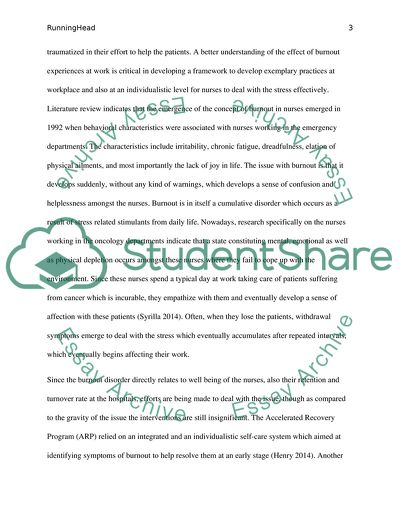Cite this document
(Oncology Nurse burnout Research Paper Example | Topics and Well Written Essays - 1250 words, n.d.)
Oncology Nurse burnout Research Paper Example | Topics and Well Written Essays - 1250 words. https://studentshare.org/nursing/1841679-oncology-nurses-burnout
Oncology Nurse burnout Research Paper Example | Topics and Well Written Essays - 1250 words. https://studentshare.org/nursing/1841679-oncology-nurses-burnout
(Oncology Nurse Burnout Research Paper Example | Topics and Well Written Essays - 1250 Words)
Oncology Nurse Burnout Research Paper Example | Topics and Well Written Essays - 1250 Words. https://studentshare.org/nursing/1841679-oncology-nurses-burnout.
Oncology Nurse Burnout Research Paper Example | Topics and Well Written Essays - 1250 Words. https://studentshare.org/nursing/1841679-oncology-nurses-burnout.
“Oncology Nurse Burnout Research Paper Example | Topics and Well Written Essays - 1250 Words”. https://studentshare.org/nursing/1841679-oncology-nurses-burnout.


